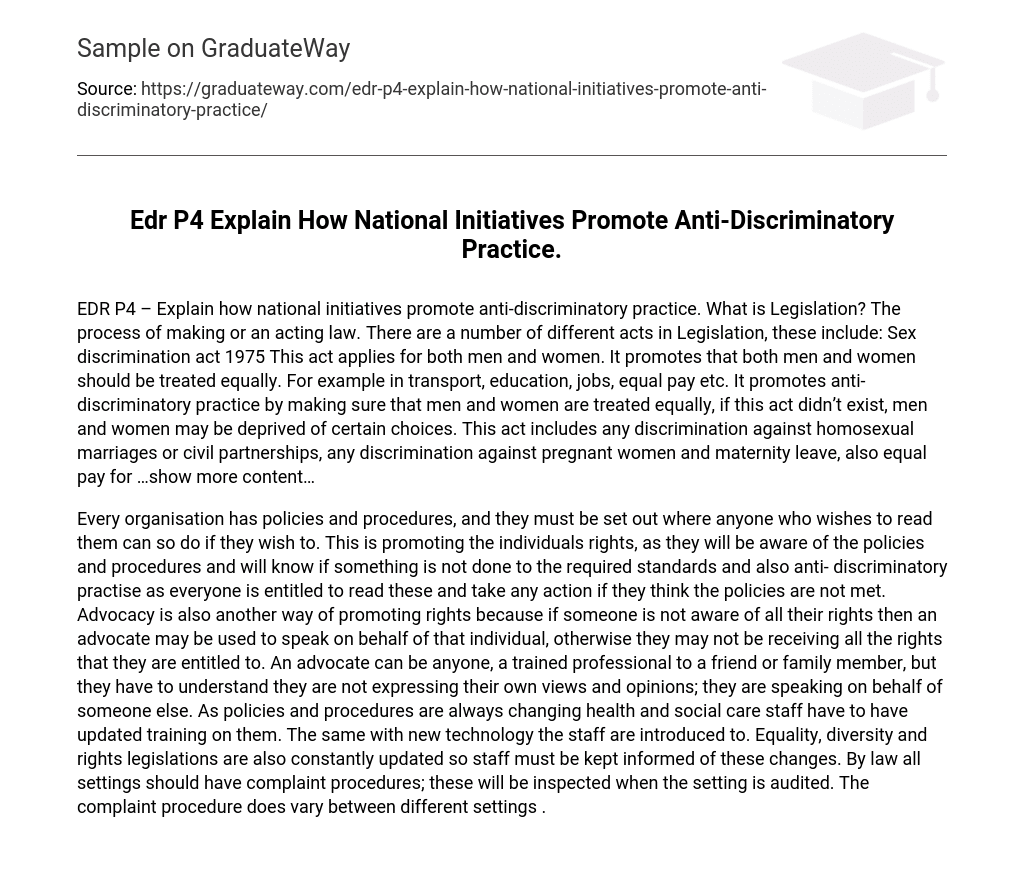The process of creating or enforcing legislation involves various acts, such as the Sex Discrimination Act of 1975. This particular act aims to ensure equal treatment for both genders, covering areas such as transportation, education, employment, and pay. By promoting non-discriminatory practices, it guarantees equal opportunities for both men and women. Without this act, individuals may face limited choices due to gender-based discrimination. Additionally, this act also addresses discrimination against homosexual marriages or civil partnerships, as well as discrimination against pregnant women and maternity leave.
It is necessary for every organization to have easily accessible policies and procedures in place that uphold individuals’ rights and promote anti-discriminatory practices. By making these policies available to everyone, individuals can stay informed about the expected standards and respond accordingly if they believe the policies are not being followed.
Advocacy is a method of promoting rights by having someone advocate for an individual who may lack awareness of their own rights, ensuring they obtain all entitled rights. The advocate, whether a trained professional or a close acquaintance, must comprehend that they are expressing the views of the other person and not their own. It is crucial for health and social care personnel to undergo regular training on evolving policies and procedures.
The staff should receive regular updates regarding the introduction of new technology and any changes in equality, diversity, and rights legislations. It is mandatory for all settings to possess complaint procedures that undergo inspection during audits; nevertheless, these procedures might differ across various settings.





